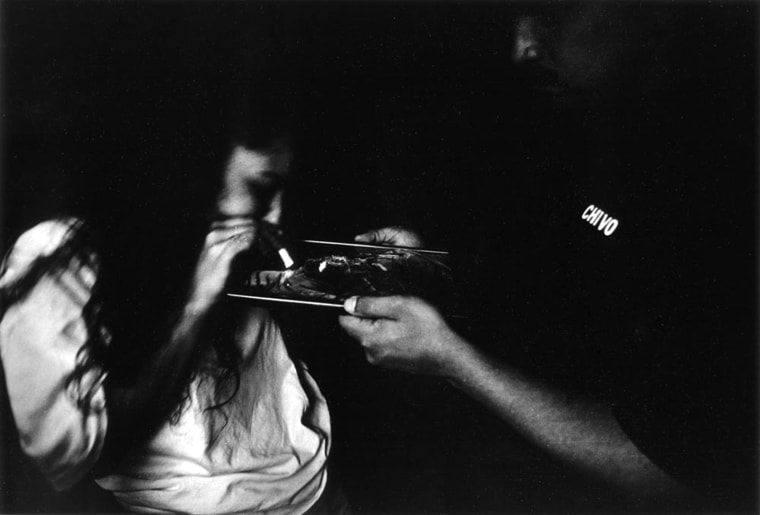Federal prosecutors essentially force men and women charged with drug crimes to plead guilty using the threat of long sentences, a new report alleges.
Human Rights Watch released a report Thursday titled “An Offer You Can’t Refuse: How US Federal Prosecutors Force Drug Defendants to Plead Guilty,” which argues that prosecutors use America's harsh sentencing laws to punish defendants who do not accept plea deals.
Ninety-seven percent of federal drug defendants do not go to trial, HRW's research found. That figure is so high because of what the report calls the “trial penalty,” longer sentences given to individuals who exercise their right to a trial rather than accept a plea offer. Federal drug offenders who are convicted after a trial receive sentences three-times longer than those who accept plea deals, according to the report.
“Going to trial is a right, not a crime,” Jamie Fellner, senior advisor to the U.S. program at Human Rights Watch and author of the report, said in a statement. “But defendants are punished with longer sentences for exercising that right.”
Prosecutors have the power to choose which charges a defendant will face, or whether to pursue tougher sentences based on criteria like prior convictions or crimes involving weapons. Prosecutors may also decide whether to pursue charges that would carry mandatory minimum sentences, one of the main drivers of the exploding federal prison population. Once a defendant is convicted, it is nearly impossible for a judge to get around a mandatory minimum sentence. HRW's report found that 90% of defendants who take cases to trial are convicted.
These extra penalties can mean the difference between a plea deal for 10 years in jail and a life sentence without parole, as in the case of Sandra Avery, a woman profiled in the report. After Avery refused a plea deal for 10 years for selling small amounts of crack while addicted to the drug, she was convicted and sentenced to life based on her previous drug convictions.
A report released in November by the American Civil Liberties Union found that at least 3,278 people are currently serving life without parole in the United States. Seventy-nine percent of those men and women are behind bars for drug-related offenses, most of which carried mandatory minimum sentences.
Federal prisons are overcrowded and understaffed, according to a recent report by the Urban Institute that looked at strategies to ease burdens on the correctional system. Bureau of Prisons facilities are operating at least 30% over capacity, and prison staffing has not kept up with population increases.
The Urban Institute recommended an approach that would allow judges more discretion in sentencing prisoners and encouraged prosecutors to change their approach to charging defendants with crimes, suggestions echoed in both the HRW and ACLU reports.
The Justice Department has called for reforms to sentencing laws, including Attorney General Eric Holder's recommendation that prosecutors not charge certain low-level nonviolent drug crimes, and that they avoid using sentencing enhancements based on prior convictions for lower-level offenses.
When asked for comment on the HRW report, Ellen Canale, a Justice Department spokeswoman, pointed to the department's shift on charging and sentencing for drug-related crimes as a necessary step to making the system function more justly. "Under the department’s policy, prosecutors are instructed not to file sentencing enhancements unless the defendant is involved in conduct that makes the case appropriate for severe sanctions," Canale told msnbc. "This seeks to ensure that these enhancements are reserved for serious, high-level, or violent drug traffickers. The department agrees that the enhancements should not be used to coerce defendants.”
